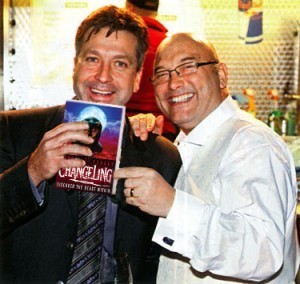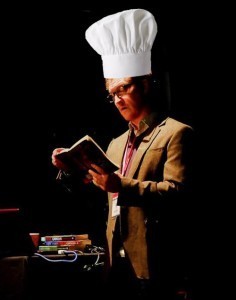Steve Feasey's Blog, page 2
April 13, 2013
To send or not to send…

Sending a new book off to a publisher is never an easy thing to do. It’s at this time when you enter writing limbo, and the experience is not a very nice one.
And it doesn’t matter if you’re a published author or not, the angst is still the same.
The book you’ve been toiling over for the last nine months seems, quite suddenly, not very good in your own mind. The plot feels weak, and the characters are not the exciting, well-rounded and emotionally deep people you’ve been working with all of that time. Abruptly, they’ve become stiff, two-dimensional and boring. You wonder what on earth your editor is going to say; part of you wants him or her to put you out of your misery and come back with a quick response saying it’s the worst thing they have ever read, the other side of you wants them to put it in a drawer and leave it there.
Time to work on something else, you think – a short story maybe, or a rework of the other novel that you’ve been dipping in and out of for the last two years. Easier said than done because the worry continues to nag away at you, like a torn cuticle at the side of your finger that you can’t seem to help but catch at every opportunity. And it’s worse if you’re writing a series. If the first book sucks as bad as you think it does, how can you start to work out how the next one is going to come together? The only thing to do is wait: wait and hope that your worries are, to some extent at least, unfounded.
So that’s where I am now: in publishing purgatory. Book one in a new series has been drafted and now resides in the hands of my editor.
Watch this space and I’ll tell you how it went.
April 24, 2012
One Thousand, Two Thousand, Three Thousand, CHECK!
Writing for a living and being beset with self-doubt go hand-in-hand. In becoming an author, you might as well face up to the fact that anxiety and angst are your new best friends. And I don’t care how famous you are, the gig is still the same.
Nothing you do is ever going to be good enough. Get used to that, and get over it. Your previous works will seem a little clunky, and full of passages you wish you could rewrite (regardless of how proud of them you are). Your latest manuscript – the one you’re working on right now, or at least would be working on if you weren’t reading this blog – has, in your opinion, gone from being a ‘sure fire winner’, to ‘something with legs’, to ‘hmmm, is this really the book I set out to write?’ You’ll curse yourself for wasting nine/ten/twelve/twenty-four* (*delete as appropriate) months on the damn thing when you could have been working on that other ‘whizzer idea’ you’ve thought of (the one you’re sure everyone will love.) All normal, all okay. Again, get used to it, and get over it.
This all sounds like pretty woeful stuff. But there’s a flip side to this self-imposed torture. It’s this very self-doubt that makes you strive to make your work the best it can be (and in doing so, become the best writer you can be). It’s the thing that makes you edit your work to within an inch of its life; worry about the weak points in the plot, and go back and shore them up; to ensure that the characters are as rounded and believable as you can make them.
 Once you recognise both sides of the coin, you can turn what, on the face of it, could become a paralysing and demotivating factor into a positive strength. Your doubt is what makes you seek out the flaws in your work (that, and bloody good editor), and in doing so you are able to address them and turn your work into something finer than it would otherwise have been. Writers who appear not to have any of this doubt (and let’s face it, we’ve all met a few) are unable to recognise the weaknesses in their work, and if you’re unable to put your finger on the flaws, well, you ain’t gonna be able to fix ‘em.
Once you recognise both sides of the coin, you can turn what, on the face of it, could become a paralysing and demotivating factor into a positive strength. Your doubt is what makes you seek out the flaws in your work (that, and bloody good editor), and in doing so you are able to address them and turn your work into something finer than it would otherwise have been. Writers who appear not to have any of this doubt (and let’s face it, we’ve all met a few) are unable to recognise the weaknesses in their work, and if you’re unable to put your finger on the flaws, well, you ain’t gonna be able to fix ‘em.
There’s a thin line between love and hate, and an even thinner one between using your self-doubt as a positive force and allowing it to destroy your confidence. Writers, especially new ones (hark at me), can focus too much on their weakness, telling themselves that they’re not good enough, and end up stultifying their talent. Hey, nobody said this writing malarkey was easy. If it was, anyone would be able to knock out a book, ignore the editing process, pop it up for sale on an online bookseller’s site for 99p or give it away. Oh, er, hang on a minute…
I was giving a talk recently about writing for children, and somebody asked me what the hardest thing about writing was. I told them it was taking that initial leap of faith. Because that’s what it is. We all sit on the lip of the airplane door and tell ourselves that we can’t do it. The man behind us is screaming at us to, “GO, GO, GO!”, but there are a million reasons NOT to jump. Eventually, it’s those brave souls who shout, “Geronimo,” and throw themselves out into the void who are the people with the biggest grins on their faces at the end of the day. I tell people who want to write, to simply sit down and do so. Don’t worry TOO much about the mistakes you’ll make, but do worry about them enough to recognise that they can be a positive thing.
was taking that initial leap of faith. Because that’s what it is. We all sit on the lip of the airplane door and tell ourselves that we can’t do it. The man behind us is screaming at us to, “GO, GO, GO!”, but there are a million reasons NOT to jump. Eventually, it’s those brave souls who shout, “Geronimo,” and throw themselves out into the void who are the people with the biggest grins on their faces at the end of the day. I tell people who want to write, to simply sit down and do so. Don’t worry TOO much about the mistakes you’ll make, but do worry about them enough to recognise that they can be a positive thing.
So, here’s to all the skydiver writers out there.
“GERONIMO!!!”
April 3, 2012
What’s cookin’?
What do you do when you’re not writing? What are you working on now that you’ve finished [insert book title here]?
These are questions I get asked all the time (and I very much doubt I’m alone on this one) . There seems to be a feeling among some people that when you are not in the middle of writing or editing a book, you’re sitting about twiddling your thumbs and achieving absolutely zip. Nothing could be further from the truth. Being ‘between books’ can be a stressful and worrying place to be. But it doesn’t have to be.
It’s what I call that process when you’ve had the kernel of a really good story idea, but you can’t quite work out what the book is going to be. So you cook it in your head for a while and see if what comes out of the oven is a beautifully risen soufflé, or a sunken mass of sticky goo.
Everything else in my life is suffering at the moment because of my obsession with this idea. I’m inattentive at the best of times, but when I’m hacking through the jungle of ‘pick me!’ ideas to try and find my way to the Golden Temple of Story, I must be hell to live with. I wake at three or four in the morning, apologising as I turn on the light and fumble about for a notebook and pencil with which to scribble down the idea that my muse (who clearly keeps very unsociable hours) has decided to drop on me. Then I go back to sleep. Unfortunately, my wife rarely does.
 Being a ‘pantser’ doesn’t help. I keep telling myself that if only I could plot; plan a route through the undergrowth before setting off on the journey, my life would be so much easier. But I’m not built like that. I have a sado-masochistic streak to me that forces me to make my writing life as difficult as possible. Not only am I a pantser, but I’m not a sharer. I shudder at the thought of telling anyone my idea, or asking someone to read the first part of a story to let me know what they think. I don’t even like letting my agent read early versions of my work. For me, getting an idea into something like a story, and a story into something like a book is an act of self-flagellation rivalled only by certain Filipino Catholics during the Penitensiya.
Being a ‘pantser’ doesn’t help. I keep telling myself that if only I could plot; plan a route through the undergrowth before setting off on the journey, my life would be so much easier. But I’m not built like that. I have a sado-masochistic streak to me that forces me to make my writing life as difficult as possible. Not only am I a pantser, but I’m not a sharer. I shudder at the thought of telling anyone my idea, or asking someone to read the first part of a story to let me know what they think. I don’t even like letting my agent read early versions of my work. For me, getting an idea into something like a story, and a story into something like a book is an act of self-flagellation rivalled only by certain Filipino Catholics during the Penitensiya.
It seems to me that most writers have to go through some kind of process to get to a point that they’re happy to start really working on their book. For some it’s the months and weeks of plotting, for others it might be days of endless speculation and navel-gazing. It’s what we do when we’re ‘not writing’, and it took me a while to realise that this was a good thing. Beating yourself up about not writing is a terribly counter-productive thing to do. Yes, it’s all very lovely to sit down each day and crunch your way through two thousand words, but if what you’ve written goes into the recycle bin of your desktop the next day, there was very little point, was there? I know, I’ve done it.
 So right now, I’m cooking. I’m not writing, and I’m feeling pretty good about it. Somewhere in the oven of my brain there’s a story taking shape, the ingredients are all there, but I have to wait and see if I have them in the right proportions and if I have the skill to bring them all together into something that is edible and enjoyable.
So right now, I’m cooking. I’m not writing, and I’m feeling pretty good about it. Somewhere in the oven of my brain there’s a story taking shape, the ingredients are all there, but I have to wait and see if I have them in the right proportions and if I have the skill to bring them all together into something that is edible and enjoyable.
Hmmm, all these food metaphors. Do you think I’ve possibly been watching too much Masterchef?





